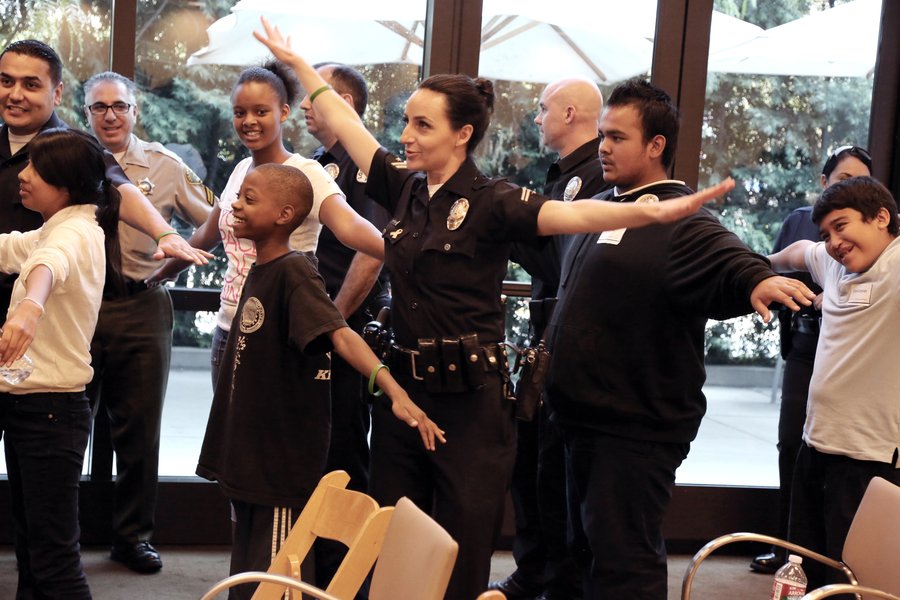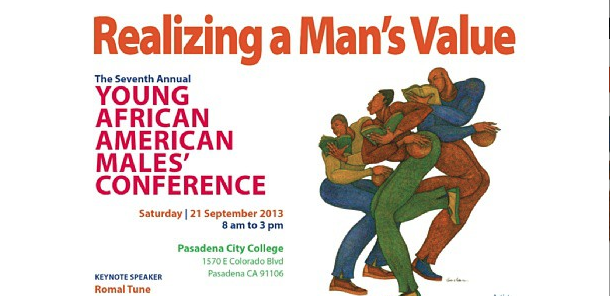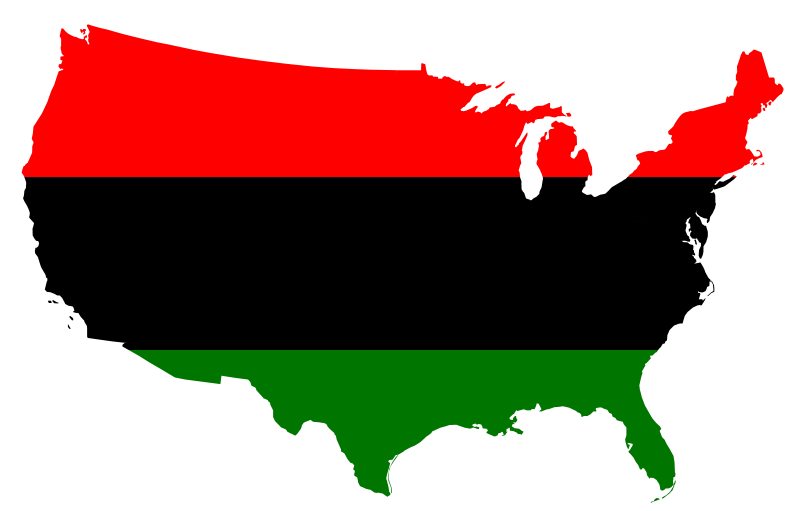 “All cruel people describe themselves as paragons of frankness.” – Tennessee Williams
“All cruel people describe themselves as paragons of frankness.” – Tennessee Williams
This article will probably get me in trouble with the politically correct police and let’s all hold hands and get along crowd who typically have an idealistic view that all the resources in the world can magically be distributed evenly across all populations. However, truth is truth especially as it pertains to social, economic, and political (SEP) interest and until we have their idealistic world we have to consider that groups will continue to battle over power to control the resources much like what happens with every one of God’s other creations – imagine that. SEP interest drives every group’s institutional and individual decision-making except for one – African Americans. African America continues to chase the ever elusive ghost of assimilation and inclusion into the (European) American Dream to the expense of its own power. Below are the three terms that to me psychologically have and continue hamper our development and why.
Affirmative Action
Simply put this has been one of the most damaging policies toward a stronger African-American institutional power development. Affirmative Action was a bill pushed for by certain Civil Rights Movement (CRM) groups and was signed into law by Lyndon B. Johnson in 1965. It owes its roots to desegregation and the court case Brown v. Board of Education of Topeka, KS in 1954.
Desegregation’s ultimate culmination into the affirmative action law was all but the signature that wiped out African-American institutional development. Prior, we built towns such as “Black Wall Street” in Tulsa, OK and Rosewood, FL and countless self-sufficient African-American towns. These towns would be torn apart ultimately because of our lack of ability to obtain political retribution for social and economic attacks against us which is where the aim of the CRM should have been. Instead, a movement within the CRM decided that equality meant to be assimilated into European American owned and controlled institutions. We would all but abandon towns which we built, businesses we started, and colleges that were founded for our interest and then begin to define success not by what we owned or controlled anymore but by being the “first” to break through into institutions where we weren’t wanted and out flanked socially, economically, and politically. Despite an understanding that in capitalism the ultimate power lies in what you control directly or indirectly and what you own.
Today, less than 15% of African-Americans who can go to college attend HBCUs despite the institutional implications that a college and university can bring to a community as noted in The University of Power & Wealth. “Success” is defined as moving out of our neighborhoods and then we wonder why our elementary and secondary schools are weak. They are weak because the demand that drives home values up which in turn increases the amount of taxes available to fund our schools and then allows them to develop and pay quality teachers was abandoned so that we could live in a “good” neighborhood. The educated and professionals instead of being a permanent presence in the community for children to see (positive social capital) instead leave children to look up to those hanging on the corner (negative social capital). It use to be that our doctors, teachers, and other professionals lived in the community and therefore set the barometer of that community. Yet, we’ll claim they can find role models or they should seek out mentoring programs missing the point of setting the rule in a community for kids instead of hoping they’ll find a way to be the exception. Before affirmative action, we started companies like C.R. Patterson, the only African-American owned automobile manufacturing company. Now, most of define our success by the car we drive not the ones we build.
Minority
The problem for African America allowing itself to be labeled a minority are numerous but I’ll address specifically as it relates to economic policy and actions. In 2008, Dr. Verna Dauterive, alum of Wiley College, donated $25 million to the University of Southern California in memory of her late husband. The money would be used to fund a scholarship for minority students that pursued a doctorate in education. Who is a minority? The answer is simply anyone who is not a European-American male. That means the scholarships from that donation, at a school whose African-American population is not even five percent, never even have to be used for an African-American. It means that if USC so chose they could give that scholarship to anyone that’s not of African descent from here on out and they would be meeting the requirements of that donation. It should also be noted that USC has a $3.5 billion endowment while her undergraduate alma mater Wiley College has a reported $50 million endowment. To say the $25 million would have gone further at Wiley impacting African-Americans is without question.
Recently it was noted by Jarrett Carter, Editor of HBCU Digest, that many HBCUs lead their states in minority purchases. In fact, Prairie View A&M University, Mr. Carter noted leads the state of Texas with 38% of its contracts awarded to minority businesses. Again, it should be pointed out that does not mean $1 has to go to African-American businesses. As a former employee and graduate assistant at Prairie View A&M University it was not unusual for us to hear stories about European American families with businesses making the wife 51% owner of the business in order to access minority contracts. You have to love loopholes.
Diversity
Every year certain business magazines release “Most Diverse Companies” and they are always speaking of the labor that works for these major corporations. The reality is that while the labor might be diverse the ownership is still typically 99.9% European American. The current idea of diversity just means you were able to get the most talented of other groups to work for another group’s economic interest. Again, I can’t state enough that it is ownership who gets rewarded the most long-term not labor. We see this in college football where schools like the University of Texas have 50,000 students of which only 500 are African-American males and 50% of them are on the football or basketball team. A football team composed of almost 70% African-American males, and is the most profitable college football program in the United States. The profits then go into non-revenue athletic scholarships which are predominantly European American (see golf, softball, swimming, baseball, etc.), along with aiding research, faculty salaries, and much more. The 1% of the population with no SEP power at the university providing immensely to the 99% with all of the SEP power. Now that’s a change.
It is always important to note who is defining what. I always get annoyed by “diversity” often being hijacked and/or pigeon holed to only mean multiple cultures. Diversity is also always talked about from a European American majority. That is to say in a room of 10 people if you have 7 European Americans, 1 African-American, 1 Asian American, and 1 Latino American you have diversity. However, if you have 7 African-Americans, 1 European American, 1 Asian American, and 1 Latino American it is not perceived as diversity. This is the hurdle that HBCUs often face in perception by not only society as a whole but even sadder by African-Americans themselves. Every time a conversation about diversity comes up I have to point out there are a number of variables by which one can create a diverse setting beyond ancestry. If I have a room of eight people of African descent with two from Jamaica, two from Ghana, two from America, and two from Brazil and each of those two is a mixture of male/female then do I not have a diverse room? Yes, I do. I just happen to have one foundational link of ancestry. I can add variables such as but not limited to geographical upbringing, economic class, education, gender, etc. Just for the record HBCUs have always been willing to take poor and underserved European Americans and others. The reverse still is not true unless of course you can do something exceptional on a football field.
We must define things from our point of social, economic, and political interest and not just blindly follow someone else’s idea of what is “good” as their idea of “good” is always from their point of view and interest. I was on a radio show where one of the guests proclaimed to me that Martin Luther King, Jr. was fighting for our right to move into someone else’s neighborhood. A clear problem of what happens when you allow someone else to control your history. Even a man who screamed for our self-sufficiency as many seem to forget has had his image and message watered down over the years. In capitalism, everything is ownership or labor. This is neither good nor bad. It just is and we all know that knowing is half the battle.
Mr. Foster is the President of AK, Inc., President of the HBCU Chamber of Commerce, Interim Executive Director of HBCU Endowment Foundation, and sits on the board of directors at the Center for HBCU Media Advocacy. A former banker & financial analyst who earned his bachelor’s degree in Economics & Finance from Virginia State University as well his master’s degree in Community Development & Urban Planning from Prairie View A&M University. Publishing research on the agriculture economics of food waste, full-time contributor at HBCU Money, and guest contributor for a number of African American media outlets.
 KC and the crew wrap up their conversation about law enforcement with David, an LAPD officer. They discuss the larger racial issues, positive interactions, the decision to shoot and more.
KC and the crew wrap up their conversation about law enforcement with David, an LAPD officer. They discuss the larger racial issues, positive interactions, the decision to shoot and more.


















